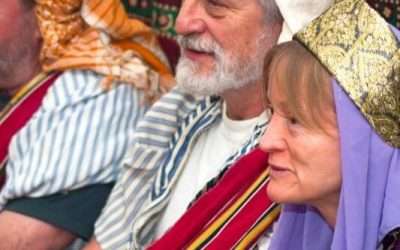The topic of an unreached people group (UPG) has become a central talking point in mission circles in the last few decades. The term has been a healthy contribution to defining the task and tracking the progress of the Great Commission. For many, there still needs to be more clarity about its definition, its purpose, and our responsibility.
People groups are ethnolinguistic groups that share a common language and cultural identity. For strategic purposes, a people group is the largest group within which the gospel can spread without encountering barriers of understanding or acceptance. Individual groups decide how they identify. A people group sees those as part of the people group as “we” or “us” and those on the outside as “they” or “them.” It’s not the outsider that decides the grouping. The group defines itself, but the outsider can observer how they identify and label them as a unique people group.
An unreached people group (UPG) is a people group among which there is no indigenous community of believing Christians with adequate numbers and resources to evangelize this people group without outside assistance. Various percentages have been attached to this idea in the past forty years. The majority consensus has been an unreached people group is less than two percent evangelical and less than five percent Christian adherent. There are an estimated 7,000 UPGs in the world, representing over 42% of the world’s population.
The thought around UPGs serves the church and the mission of God. Nearly fifty years ago, almost every geopolitical nation had a church. Yet, if one looked at the world in terms of people groups rather than modern nations, “some 2.3 Billion people and their succeeding generations would remain unevangelized if the extremely difficult task of cross-cultural evangelism did not become the church’s highest priority.”
People group thought helps the church identify and clarify who the gospel has not touched or where there are not enough believers and resources for the people group to evangelize their own without outside assistance. When there is clarity on need, it helps bring focus to prayer, engagement, and resource allocation.
Dr. Ralph Winter was an early advocate of unreached people groups. Winter initially referred to these people groups as “hidden peoples.” Hidden peoples is an excellent word image for diverse sociocultural countries like India and Nigeria. Still, even in the diaspora of North America, there are many unreached people groups hidden in plain sight.
This move toward people groups for Winter was more than just a sociological exercise. Matthew 28:18-20, along with Matthew 24:14, were guiding influences for Winter. Specifically, three Greek words, “Panta te ethne,” commonly translated as “all the nations.” Winter wrote,
“By the phrase “all the nations,” Jesus was not referring at all to countries or nation-states. The wording he chose (the Greek word ethne) instead points to the ethnicities, the languages, and the extended families which constitute the peoples of the earth.”
Dr. Winter helped move mission strategy from geopolitical boundaries to distinct people groups. God is inviting the church to rediscover her call to witness to and bless the nations. God’s heart from Genesis to Revelation is to gather a people to Himself from every nation, tribe, people, and language. This end-vision is accomplished in Revelation 7:9. If a church should give her time, talent, and treasure to anything, it should be to that end. The question isn’t if it will happen but whether you play a part. Regardless of your role, it is essential to remember that every person deserves to hear the good news of Jesus Christ.




